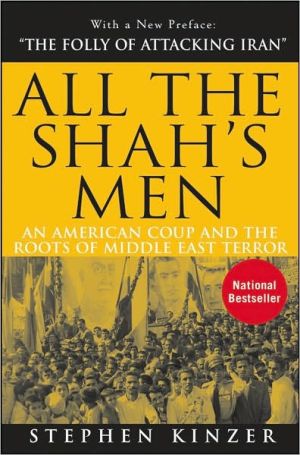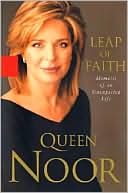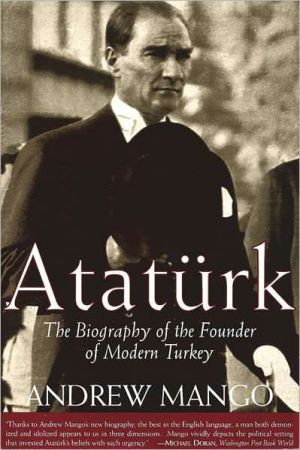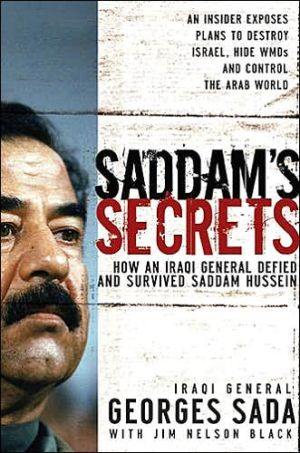All the Shah's Men: An American Coup and the Roots of Middle East Terror
As zealots in Washington intensify their preparations for an American attack on Iran, the story of the CIA's 1953 coup-with its many cautionary lessons-is more urgently relevant than ever. All the Shah's Men brings to life the cloak-and-dagger operation that deposed the only democratic regime Iran ever had. The coup ushered in a quarter-century of repressive rule under the Shah, stimulated the rise of Muslim fundamentalism and anti-Americanism throughout the Middle East, and exposed the folly...
Search in google:
In a cloak-and-dagger story of spies, saboteurs, and secret agents, Kinzer reveals the involvement of Eisenhower, Churchill, Kermit Roosevelt, and the CIA in Operation Ajax, which restored Mohammad Reza Shah to power. Reza imposed a tyranny that ultimately sparked the Islamic Revolution of 1979 which, in turn, inspired fundamentalists throughout the Muslim world, including the Taliban and terrorists who thrived under its protection. The New York Times … Mr. Kinzer, a veteran correspondent for The New York Times whose last foreign posting was in Istanbul (where he also covered Iran), decided to take another look at this well-known episode. He does so with a keen journalistic eye, and with a novelist's pen. In what is a very gripping read, he recounts the story of the coup and how it came about. In the process, he reveals much about Iran's history, paints a sharp portrait of British colonialism just at the point of its ultimate collapse, and lays bare the debate on how the United States should engage the world. — Ivo H. Daalder
Click to read or download
PrefaceixAcknowledgmentsxiNotes on Usagexiii1.Good Evening, Mr. Roosevelt12.Curse This Fate173.The Last Drop of the Nation's Blood304.A Wave of Oil475.His Master's Orders626.Unseen Enemies Everywhere837.You Do Not Know How Evil They Are1028.An Immensely Shrewd Old Man1199.Block Headed British13410.Pull Up Your Socks and Get Going15011.I Knew It! They Love Me!16712.Purring Like a Giant Cat193Epilogue216Notes229Bibliography244Index250
\ The New York Times… Mr. Kinzer, a veteran correspondent for The New York Times whose last foreign posting was in Istanbul (where he also covered Iran), decided to take another look at this well-known episode. He does so with a keen journalistic eye, and with a novelist's pen. In what is a very gripping read, he recounts the story of the coup and how it came about. In the process, he reveals much about Iran's history, paints a sharp portrait of British colonialism just at the point of its ultimate collapse, and lays bare the debate on how the United States should engage the world. — Ivo H. Daalder\ \ \ \ \ The Los Angeles TimesFifty years ago, the CIA overthrew Mohammad Mossadegh, the popular, democratically elected prime minister of Iran, and reinstalled the country's exiled monarch, Mohammad Reza Shah. In All the Shah's Men, Stephen Kinzer, a longtime New York Times correspondent, covers this event in an exciting narrative. He questions whether Americans are well served by interventions for regime change abroad, and he reminds us of the long history of Iranian resistance to great power interventions, as well as the unanticipated consequences of intervention. — Nikki R. Keddie\ \ \ The Washington Post… an entirely engrossing, often riveting, nearly Homeric tale, which, if life were fair, would be this summer's beach book. For anyone with more than a passing interest in how the United States got into such a pickle in the Middle East, All the Shah's Men is as good as Grisham. — Jeff Stein\ \ \ \ \ Publishers WeeklyWith breezy storytelling and diligent research, Kinzer has reconstructed the CIA's 1953 overthrow of the elected leader of Iran, Mohammad Mossadegh, who was wildly popular at home for having nationalized his country's oil industry. The coup ushered in the long and brutal dictatorship of Mohammad Reza Shah, widely seen as a U.S. puppet and himself overthrown by the Islamic revolution of 1979. At its best this work reads like a spy novel, with code names and informants, midnight meetings with the monarch and a last-minute plot twist when the CIA's plan, called Operation Ajax, nearly goes awry. A veteran New York Times foreign correspondent and the author of books on Nicaragua (Blood of Brothers) and Turkey (Crescent and Star), Kinzer has combed memoirs, academic works, government documents and news stories to produce this blow-by-blow account. He shows that until early in 1953, Great Britain and the Anglo-Iranian Oil Company were the imperialist baddies of this tale. Intransigent in the face of Iran's demands for a fairer share of oil profits and better conditions for workers, British Foreign Secretary Herbert Morrison exacerbated tension with his attitude that the challenge from Iran was, in Kinzer's words, "a simple matter of ignorant natives rebelling against the forces of civilization." Before the crisis peaked, a high-ranking employee of Anglo-Iranian wrote to a superior that the company's alliance with the "corrupt ruling classes" and "leech-like bureaucracies" were "disastrous, outdated and impractical." This stands as a textbook lesson in how not to conduct foreign policy. (July) FYI: Publication coincides with the 50th anniversary of the coup, a good news hook for promotion. Copyright 2003 Reed Business Information.\ \ \ \ \ Foreign AffairsFifty years ago last August, the United States carried out a secret operation to overthrow the Iranian prime minister, Muhammad Mosaddeq, and restore the shah to his throne. Iranians were aware of this "secret" at the time, and its basic facts have been well known since the 1960s. The story, however, is worth retelling: its repercussions are felt to this day. Kinzer deftly uses scholarly accounts, memoirs, and official records (including the CIA's once-classified internal history of the coup, written by the late Donald Wilber) to produce a crisp, readable narrative. Two chapters sketch Iranian history and political culture. Then, Kinzer hones in on the period from shortly before Iran's nationalization of the Anglo-Iranian Oil Company in 1951 until August 19, 1953, when a handful of plotters and the mobs they had recruited reversed the debacle of days earlier and pulled off the coup. By concentrating on those Americans, British, and Iranians who hatched and carried out the plot, All the Shah's Men reads like a morality play or a le Carre spy story. There is even a cameo role for an Iranian mob leader with the unforgettable moniker "Shaban the Brainless." And that may well be the best way to gauge the meaning of it all.\ \ \ \ \ Library JournalThat the past is prolog is especially true in this astonishing account of the 1953 overthrow of nationalist Iranian leader Mohammed Mossadegh, who became prime minister in 1951 and immediately nationalized the Anglo-Iranian Oil Company. This act angered the British, who sought assistance from the United States in overthrowing Mossadegh's fledgling democracy. Kermit Roosevelt, Teddy's grandson, led the successful coup in August 1953, which ended in the reestablishment of the Iranian monarchy in the person of Mohammad Reza Shah. Iranian anger at this foreign intrusion smoldered until the 1979 revolution. Meanwhile, over the next decade, the United States successfully overthrew other governments, such as that of Guatemala. Kinzer, a New York Times correspondent who has also written about the 1954 Guatemala coup (Bitter Fruit: The Story of the American Coup in Guatemala), tells his captivating tale with style and verve. This book leads one to wonder how many of our contemporary problems in the Middle East may have resulted from this covert CIA adventure. Recommended for all collections.-Ed Goedeken, Iowa State Univ. Lib., Ames Copyright 2003 Reed Business Information.\ \ \ \ \ Kirkus ReviewsA commemoration, half a century later, of a transformative event that few today remember. The event in question is the American-sponsored overthrow of the democratic regime of Iranian prime minister Mohammed Mossadegh, which set in motion other events-including, suggests New York Times correspondent Kinzer (Crescent and Star, 2001), the eventual rise of Al Qaeda. Mossadegh, a moderate nationalist who was no fan of the British and American interests that tried to carve up Iran after WWII, had had the effrontery to nationalize the British-dominated oil industry and tried to steer Iran into a neutral position vis-à-vis the American-Soviet rivalry. This suited President Harry Truman fine, writes Kinzer: "He had nothing but contempt for old-style imperialists like those who ran Anglo-Iranian [Oil Company]," and even had a certain sympathy for nationalist movements, at least of the noncommunist variety. Truman's successor, Dwight Eisenhower, had a different view; though he took pains to distance himself from operational details, he authorized the CIA and its allied agencies to engineer Mossadegh's ouster. Many of those details were planned and effected by Middle East hand H. Norman Schwarzkopf, father of the Gulf War general, and Kim Roosevelt, grandson of yet another president; the two recruited disaffected Iranian generals to carry out the deed, some of whom bragged openly about their new pals at the CIA and the rewards that would await them once they took Mossadegh out of circulation. The spooks had a somewhat harder time convincing the playboy Shah of Iran, Reza Mohammed Pahlavi, to abandon his jet-set ways and take power. Eventually, however, Iranian rebel tanks rolled, Mossadegh was putunder house arrest for the last ten years of his life, and the shah's reign of terror began, to end only with the Iranian revolution of 1979 and its infamous results. Yet another example of American foreign intrigues gone badly wrong: well-argued-but stomach-turning. Agent: Nancy Love\ \ \ \ \ From the Publisher"Breezy storytelling and diligent research.... This stands as a textbook lesson in how not to conduct foreign policy." —-Publishers Weekly\ \







